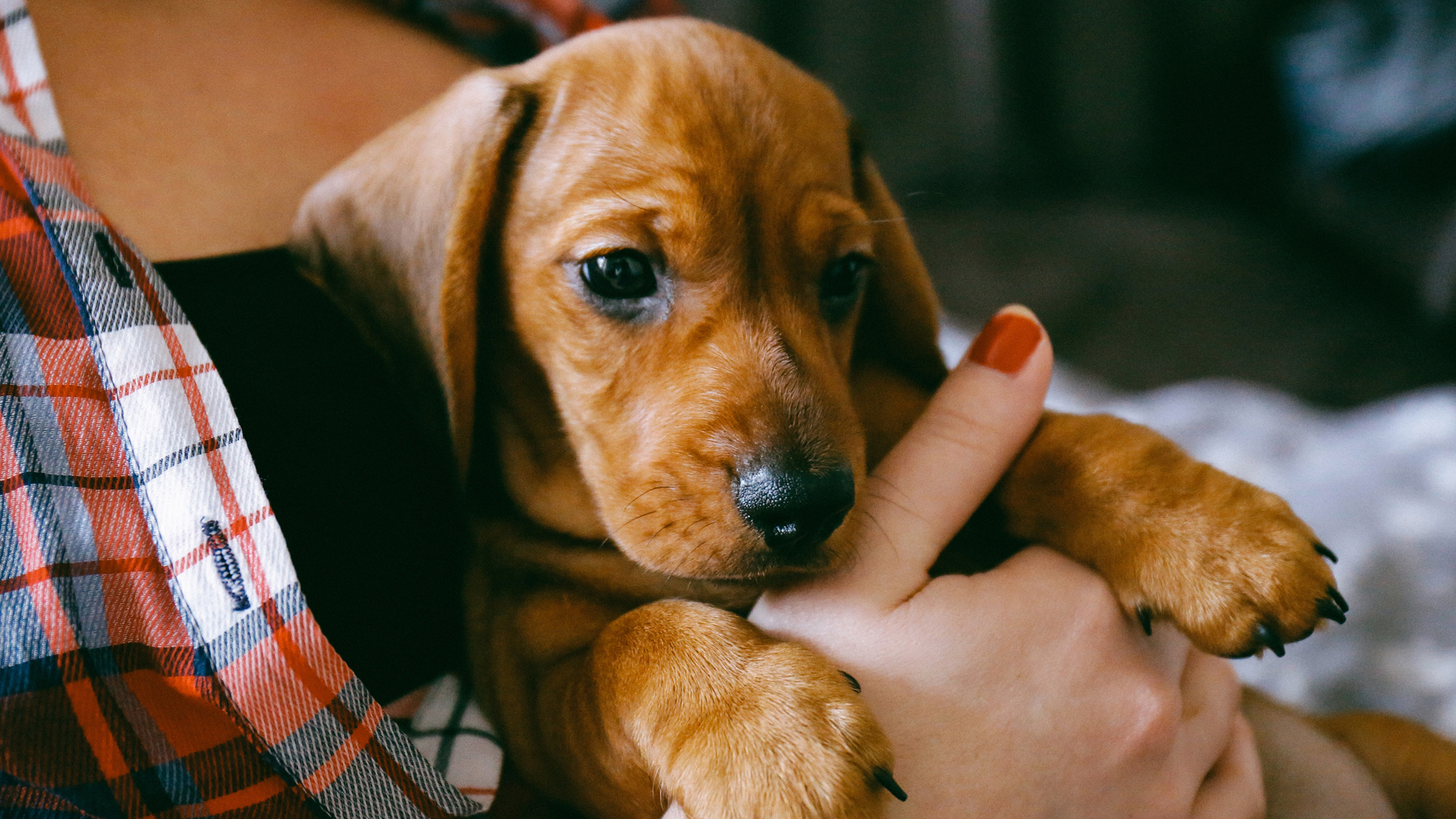Worried about having guests around your nervous dog? Trainer reveals five ways to politely tell your visitors to ignore them
Avoid the stress of stressing your dog out when you have visitors over and just tell them one of these polite lines

Get the best advice, tips and top tech for your beloved Pets
You are now subscribed
Your newsletter sign-up was successful
We all love to welcome guests into our homes, but for some dogs, it can be a stressful experience. As dog owners, it's our responsibility to set boundaries and help our furry friends feel safe and comfortable.
Many canine owners will have asked themselves the question, 'how do I know if I have a scared dog?', and this often comes up when a dog shows signs of fear around new people hanging around their home. Anyone can try and distract a dog from this using one of the longest lasting dog chews from the pet store. But this is simply supressing the issue for a nervous dog rather than working on improving this fear.
How can you work on having guests visit your home without unsettling your pup? Let your guests know. Not everyone knows about anxiety in dogs and how to approach those who suffer from this. Thankfully, the trainers at Kane 9 Dog Training have provided five different ways you can politely ask your friends and family to be mindful of a nervous dog in your home.
They shared these in the form of graphics on the Kane 9 Dog Training Instagram page which you can view below before reading on.
A post shared by Kait | Dog & Human Coach (@kane9dogtraining)
A photo posted by on
Below are the five different approaches that the Kane 9 trainers would recommend taking when you have guests coming over and your dog is prone to having a wobble. Have a look at each and see which one you might feel most comfortable using next time you have people coming round:
1) No talk, no touch, no eye contact
"I so appreciate how much you want to embrace our dog, but having guests over is a challenge for her and she does best given her space. Less pressure on her the better. So please just think “no talk, no touch, no eye contact.”
Get the best advice, tips and top tech for your beloved Pets
2) Respect the dog's boundaries
"As mentioned before, we need you to ignore our dog when you come over. We will make sure he isn’t in your space, but please also make sure you respect his. He is very uncomfortable with new people, so for everyone’s peace of mind, please resect our boundaries with him."
3) Give the dog some time to adjust
"Our dog is nervous around new people, so please ignore her when you come in. When people ignore her for a bit, she is much more comfortable, If I feel like she is ready to engage or come up to you, I’ll release her, but if not, you just being around and giving her space is a huge help for us."
4) Respect the dog's personal space
"I will have our dog on their place bed when you come in. Please do not baby-talk them or try to pet them. I know they are cute but they need their space. I want to make sure everyone feels comfortable."
5) Don't be afraid to put your own dog away
"You don’t have to have your dog out! It is also totally okay to put your dog in the crate while you have people over, even if it’s just when specific groups of people are over! You’re allowed to ‘human’ and not always be in dog training mode. Find the balance that’s right for you!"
If you do plan on using any of these options, you don't need to say them word for word to your family and friends who are visiting you. They are more useful cues for how you start the conversation about your nervous dog and help you set up impactful boundaries that will keep your dog happy and let you and your guests enjoy your time together better.

Jessica holds a journalism degree from Cardiff University and has authored articles for renowned publications, including PetsRadar, Fit&Well, LiveScience, Runner's World, The Evening Express, and Tom's Guide. Throughout her career in journalism she has forged connections with experts in the field, like behaviorists, trainers, and vets. Through her writing, Jessica aims to empower pet owners with accurate information to enhance their furry companions' lives.
